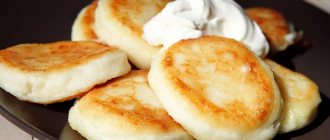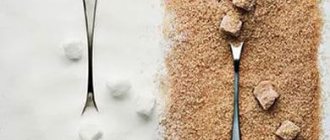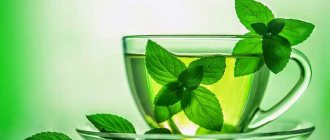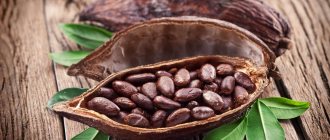Hello friends! Lena Zhabinskaya is with you! Absolutely all mothers are looking for simple recipes for dishes during breastfeeding, who already know that thoughtful nutrition during breastfeeding means good lactation, rapid recovery after childbirth, and proper growth and development of the baby.
And all this without stress, heavy workload, unnecessary screams and sleepless nights for the baby and the well-known postpartum depression. And this kind of nutrition should not be confused with a strict diet that limits the mother in what she needs. Thanks to the recommendations of breastfeeding specialists, the menu of a young nursing mother will be the envy of a real gourmet.
Principles of nutrition for nursing mothers
- Diversity. Even the most stringent diet implies mandatory saturation of the body with the vitamins and microelements it needs, and even more so the diet of a nursing mother. Where do you get all these useful substances from? From the main food groups: cereals, vegetables and fruits, meat, fish, eggs, milk, nuts.
- Safety. When breastfeeding, it is extremely important to pay due attention to proper thermal processing of food, especially when it comes to meat, fish, eggs, and milk. When preparing dishes, preference should be given to stewing, baking, steaming, and boiling.
- Moderation. You should not blindly believe the myth that mothers of newborns should feed for two. Any overeating is fraught with problems with the gastrointestinal tract in a newborn. And it doesn’t matter what exactly you ate. In the first month, even safe food can cause discomfort in a child (should read: severe colic, bloating, problems with stool). But there is no need to go to extremes, denying yourself normal nutrition in pursuit of beauty.
- Power frequency. How many times a day should a young mother eat after giving birth? 3 main meals and several snacks are recommended. The ideal solution would be fractional meals, which will allow you to stay full and not gain excess weight. What about lactation? And here, it’s all about the following principle.
- Drinking regime. A sufficient amount of fluid in the body is the key to full milk production. You can ensure it by drinking clean water, tea, compotes, soups, and broths. The daily fluid intake for a nursing mother is 2.5 - 3 liters. The main thing is not to jump on water in the first days after childbirth. During the development of lactation, excess fluid will lead to an increase in milk production and increase the risk of developing lactostasis.
Sample weekly menu for the first month for a breastfeeding mother
The food taken during this period should be special, as the woman waits for the mysterious moment of milk arrival.
1 day
Morning: porridge with water, buckwheat or oatmeal. Daytime: vegetable soup with breadcrumbs, mashed potatoes, zucchini, boiled turnips and carrots. Evening: durum pasta with cheese, baked apple, banana. Liquid: weak tea, freshly squeezed juice, dried fruit compote, purified water.
Day 2
The menu on the second day is approximately the same as on the first day. True, you can slightly increase the number of products.
Day 3
You will have to reduce the amount of liquid you drink, as a large supply of milk is expected. You can add butter or vegetable oil to your morning porridge. During the day, the menu can be varied with boiled fish. In the evening, a woman can treat herself to vegetable stew.
4 day
You can start the morning with muesli and kefir. During the day, you can diversify the menu with a piece of boiled meat with stewed vegetables. In the evening, include low-fat cottage cheese in your diet. During the day you can eat bananas and green apples.
5 day
Morning porridge can be generously flavored with butter. Lunch may consist of meat soup with vegetables. The evening menu includes muesli with fermented baked milk or kefir.
Day 6
On this day, you can combine the dishes of the fourth and fifth days, at the discretion of the postpartum mother herself.
Day 7
A woman can afford to take 2-2.5 liters of liquid. The diet can be supplemented with boiled rice and eggs.
Then, every day, add a variety of healthy and high-quality dishes to the menu that will help improve the health of mother and baby.
Before giving birth, every woman should make a list of foods that are useful for her future condition, as well as what she will need to abstain from.
It is worth remembering that the number of calories consumed by a nursing woman should not be lower than 2500 kcal per day, and the volume of liquid drunk should be no more than 1-1.5 liters.
Thanks to the compiled list of necessary products, you can create a lot of all kinds of delicious dishes that will be useful for other household members.
What to eat and what not to eat
The diet of a young mother must include:
- lean types of meat. Suitable simply boiled or in the form of meatballs or meatballs. These delicacies can be made from turkey, beef, veal, chicken, rabbit;
- low-fat fish (hake, cod, pike perch) – it can be boiled or steamed;
- low-fat fermented milk products - yogurt, kefir, fermented baked milk, cottage cheese. The latter is recommended to be cooked, that is, consumed in casseroles and cheesecakes;
- vegetables - first boiled or stewed, later fresh;
- fruits - you can start with freshly brewed compotes, juices, then eat whole fruits;
- porridge - oatmeal, buckwheat, corn, wheat and even rice, if no one has constipation. GW consultants do not recommend consuming semolina in the first six months. It will not be beneficial either for the mother or for the baby;
- wholemeal bread, pasta made from durum flour;
- dried fruits - you can cook compotes from them, or use them yourself as sweets;
- butter – up to 25 grams per day;
- vegetable oil – up to 15 grams. Not only sunflower is suitable, but also olive and corn, which can be added to dishes.
It is not recommended to eat fried, smoked, spicy, fatty, salty, mushrooms. In the first months after childbirth, it is better to exclude pork dishes, replacing them with those prepared from other types of meat. Such food provokes problems with stool for both mother and newborn.
In addition, you should limit your consumption of sweets and starchy foods, including sweets, pastries, cakes, buns, and baked goods. The only exceptions for nursing women are high-quality and healthy treats: marshmallows, marshmallows, homemade low-fat baked goods in small quantities.
Dairy products
Dairy and fermented milk products are perfect for restoring protein reserves in the mother’s body. Also, fermented milk products are enriched with phosphorus, calcium, vitamins A and D. Lacto- and bifidobacteria help normal digestion.
• Kefir. Has a beneficial effect on intestinal microflora. During the feeding period, it is recommended to drink 1-2 glasses per day. One glass preferably before bedtime.
• Ryazhenka. Just like kefir, it is recommended to consume 1-2 glasses. Preferably in the afternoon.
• Varenets, snowball. The same recommendations as for fermented baked milk.
• Yoghurts. You should choose both drinkable and thick ones. Preference should be given to yoghurts without flavors.
• Cottage cheese. Can be consumed both ready-made and in the form of casseroles and cheesecakes. It is advisable to eat cottage cheese every other day. The daily norm is 100 g. If it is cheesecakes or casserole, the norm can be increased to 250 g
• Cheese. Enriched with proteins, fats and calcium. It is simply necessary to include it in your diet. The daily norm is 30-50 g.
Does spicy food cause discomfort in a baby?
It is believed that some foods can cause colic in infants. As a rule, these are fatty, too spicy (red curry or chili) and overly salted foods. It's really best to avoid these foods if you're breastfeeding.
Typically, if your baby doesn't like a new food you've tried that has changed the taste of the milk, he or she will behave unusually and cry. This is why you need to stick to the trial and error method when breastfeeding. Whenever you try something hot or spicy, monitor your baby's behavior.
You should discard the product if you notice one or more of the following signs:
- Irritability.
- Rash or spots on the skin.
- Non-stop crying.
- Excessive fussiness after feeding.
- Breast refusal.
- Change in bowel movements, mucus, diarrhea, or bloating.
These signs may indicate that the mother is not eating properly. It is likely that your child is sensitive to hot and spicy foods. Or it could be a manifestation of an allergic reaction to one of the ingredients in the dish.
That is why you should gradually eliminate each of them and monitor your baby. If the negative reaction passes, it means that the problematic product has been found and it is better not to eat it for now.
Is it possible to eat spicy foods while breastfeeding?
In principle, if such food is eaten in moderation, then it can be allowed during breastfeeding. It must be remembered that this period does not mean that you must follow a strict diet consisting of two or three types of foods. What you eat passes into breast milk in very small quantities, and therefore the chance that it will cause any negative reaction in your little one is minimal.
However, be aware of the fact that spicy foods can change the taste of your milk. The baby may like this or, on the contrary, cause him to be rejected; everything is individual here.
Beverages
In the first month of lactation, doctors allow you to drink only water and green tea. Pure still water is the main drink that is consumed throughout the entire lactation period. Green tea tones and has a positive effect on the formation of breast milk. At the same time, it is safe for the baby.
Drink weak black tea from the second or third month. At the same time, freshly prepared apple and carrot juices, half diluted with water, are introduced. Over time, the volume of water is reduced. During the feeding period, you should not drink tomato juice, juices from citrus fruits and exotic fruits.
A suitable drink for lactation is compote of berries, fruits and dried fruits. Fresh and dried pears and apples, dried apricots and raisins, plums and prunes are suitable. During breastfeeding, bright berries and fruits should be excluded. Therefore, it is not recommended to drink compotes made from red currants, strawberries or wild strawberries. You will find recipes for the drink in the article “Preparing compote for a nursing mother.”
Drink cow's milk with caution. In the first months, it is better to abandon this product or replace it with goat milk. Kefir can be drunk 6-8 months after the baby is born.
You should not drink coffee during lactation for at least six months. It negatively affects the nervous system of the infant, disrupts sleep, increases activity and excitability. Coffee lovers can switch to chicory, which is less harmful to babies.
Nursing mothers are prohibited from drinking alcohol and carbonated drinks. They cause irreparable harm to the child and mother, causing illness and disturbances in the functioning of internal organs.
Garlic and breastfeeding
Garlic has long been used as a product that increases the amount of breast milk produced, and is therefore classified as a lactogen. Scientific studies indicate that infants tend to eat longer and in larger quantities if mother's milk has a garlic component.
However, we should not forget about possible allergies or individual intolerances - watch for the signs that we have given above. By the way, don’t worry that the taste of your milk will change greatly because of the garlic - no, there will only be a slight garlic note in breast milk, and it itself will remain as sweet as before.
Fruits
Apples are healthy fruits that can be eaten in the first week of lactation. Take green fruits and peel the skin before eating. Applesauce becomes an integral and key dish in the first month of breastfeeding. Apples increase hemoglobin and improve blood composition, and are a good prevention of constipation.
Pear is a fairly safe fruit that improves blood formation, stabilizes the functioning of the heart and digestion, and treats gastritis and heartburn. They are sweeter than apples, but contain less sugar. Remember that pears should not be eaten on an empty stomach! Choose green, firm fruits and remove the peel before eating.
Peaches and nectarines contain an allergen, so you need to eat such products carefully and no earlier than three months from the beginning of lactation. These fruits normalize stool, help during periods of stress and depression, and prevent swelling. Peaches improve your mood and fill you with energy. However, it is better for a nursing mother to choose nectarines. This is a mixture of apple and peach, which has the same valuable properties, but is less allergenic.
Bananas are the only exotic fruit that is not contraindicated during breastfeeding. A banana will be a good snack between meals, and banana puree will be healthy for breakfast. This fruit improves mood, strengthens the immune system and normalizes sleep.
Watermelon removes harmful substances and increases the level of lactation, but causes vomiting and severe digestive disorders in the baby, and disrupts bowel movements. Most often, this is caused by poor quality or unripe product. Today it is difficult to find fruit without preservatives and chemicals. Therefore, it is better to avoid watermelon in the first year of lactation. The same goes for melon.
Plums normalize blood circulation and strengthen, eliminate constipation and strengthen bones. It is good for mothers to consume plum compote, which improves lactation levels. Prunes will also be beneficial. When consuming dried fruits, the risk of allergies is sharply reduced.
During the first three months of lactation, consume fruits dried and baked. Before eating, carefully select the fruits, make sure that they are free from rot, bruises and stains. Wash and peel fruits.










